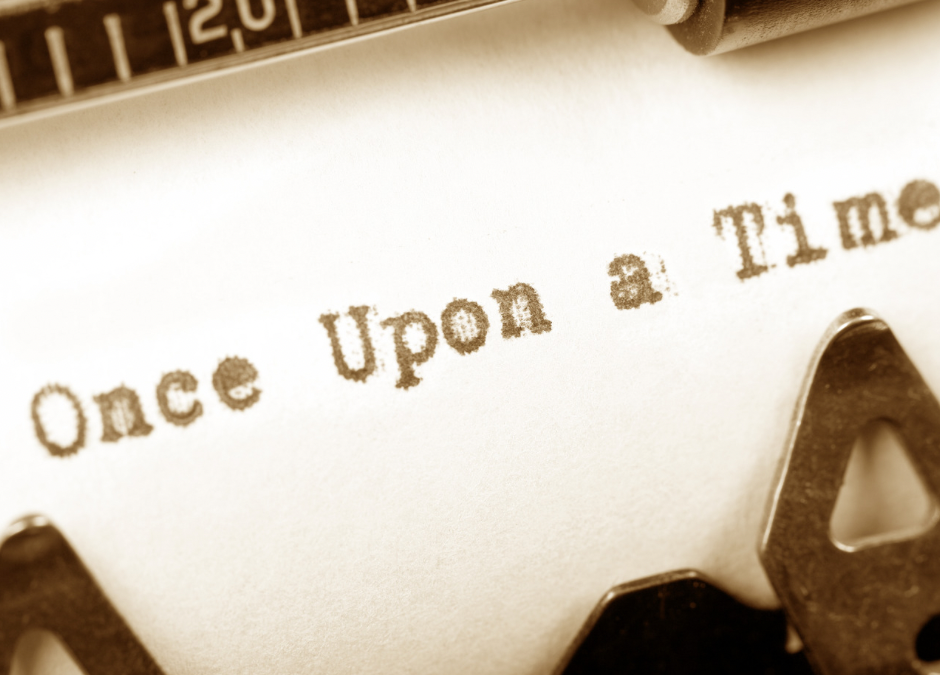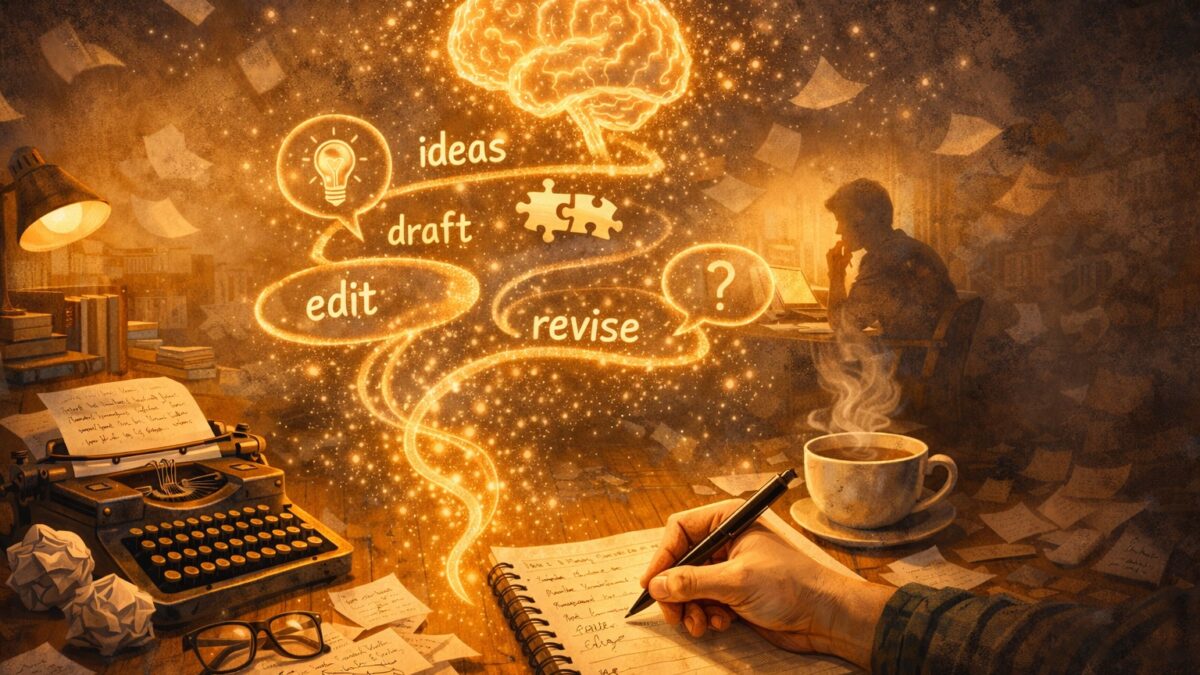Writer’s Effect for IGCSE First Language English: A Guide

In today’s post, I thought to write about something that many of you been requesting for: A guide on Writer’s Effect. (note: We’ve just released The Complete Guide to Writer’s Effect, and we hope you’ll enjoy it!)
I started to think about doing this ever since I had performed a poll on the IGCSE Malaysia Facebook group, and this happened:
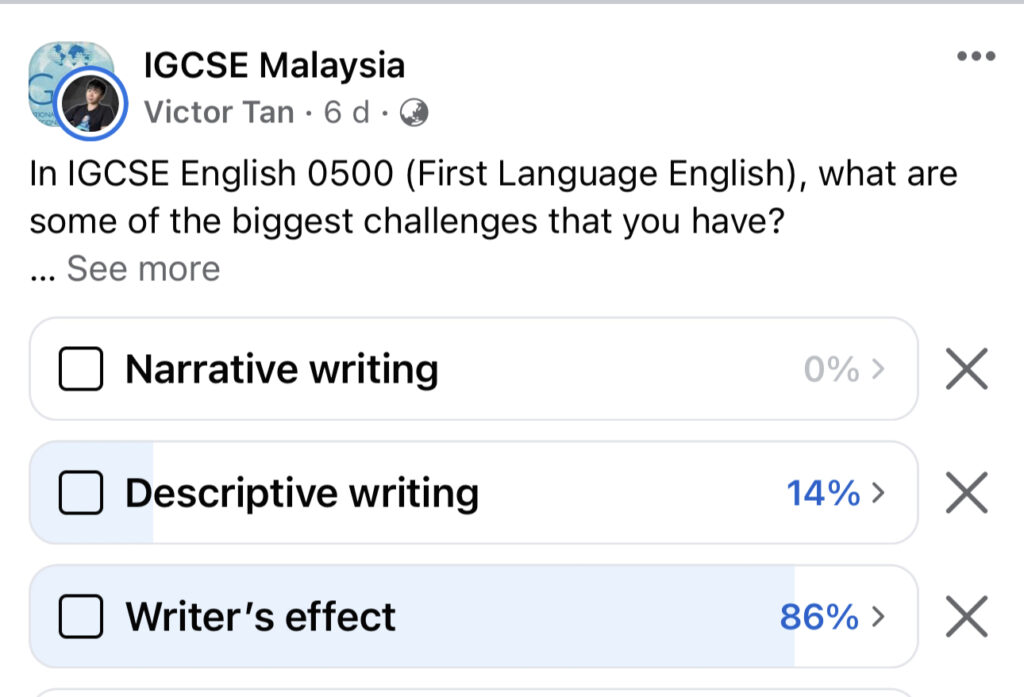
All right, I hear you!
Let’s get into it!
Writer’s Effect questions appear in Paper 1 of the IGCSE first language English exam. Here’s an example from Variant 1 of Summer 2021. You may seek out the paper (look for 0500_s21_qp_11 and 0500_s21_in_11 and look for text B on pastpapers.co and follow along if you wish) 🙂
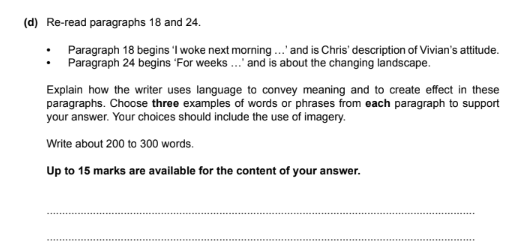
Generally, these questions are often phrased in the same way.
They ask you to highlight three key words or phrases that can be found in the texts that you will be reading for the exam, and to point out how the writer uses those words or phrases achieve specific effects upon the reader.
The key word here is how. More on this later.
Sounds easy?
Well, many students struggle with this.
As they write, they overemphasise the content of the pieces that they are generating and prefer to write about the content inside the passages that they are reading rather than doing what they are supposed to actually do, which is actually to talk about language.
Let me give you an example from a recent student essay that I marked.
“In paragraph 18, the writer begins with the phrase “wails” to create a sense of drama and exaggeration, which highlights Vivian’s discomfort with her surroundings. The writer then continues with the phrase “plucked out of her comfort zone.” This metaphor is used to emphasise Vivian’s transition of city life to cycle touring. The phrase also suggests that Vivian was unprepared for the challenges of the trip.”
In this case, as with many other cases of student work, the student focused not on language but instead made a relatively weak statement about the content of the passage that is pretty obvious to anyone who reads it.
Here’s my feedback and improvement on this:
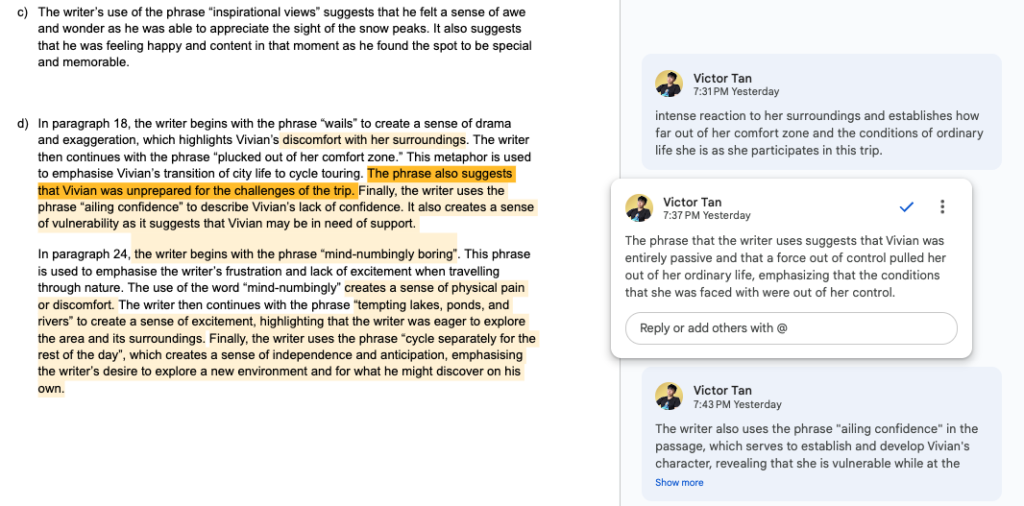
Now, here’s my commentary:
(Oh, but before that, I’m sorry to burst your bubble if you’re a non-member, but to read this you’re going to have to sign up for a free membership – don’t worry, it will only take a minute!)
If you haven’t signed up yet, make sure to Join Now!
Now, a bit of guidance for our Premium Members, containing a format I recommend for your Writer’s Effect:
We hope that you found this incredibly useful, and that it will help you on your journey to being able to break down Writer’s Effect, and to consistently do well in this section of the exam – good luck, make sure to keep practicing, and here is to your success!
V.
